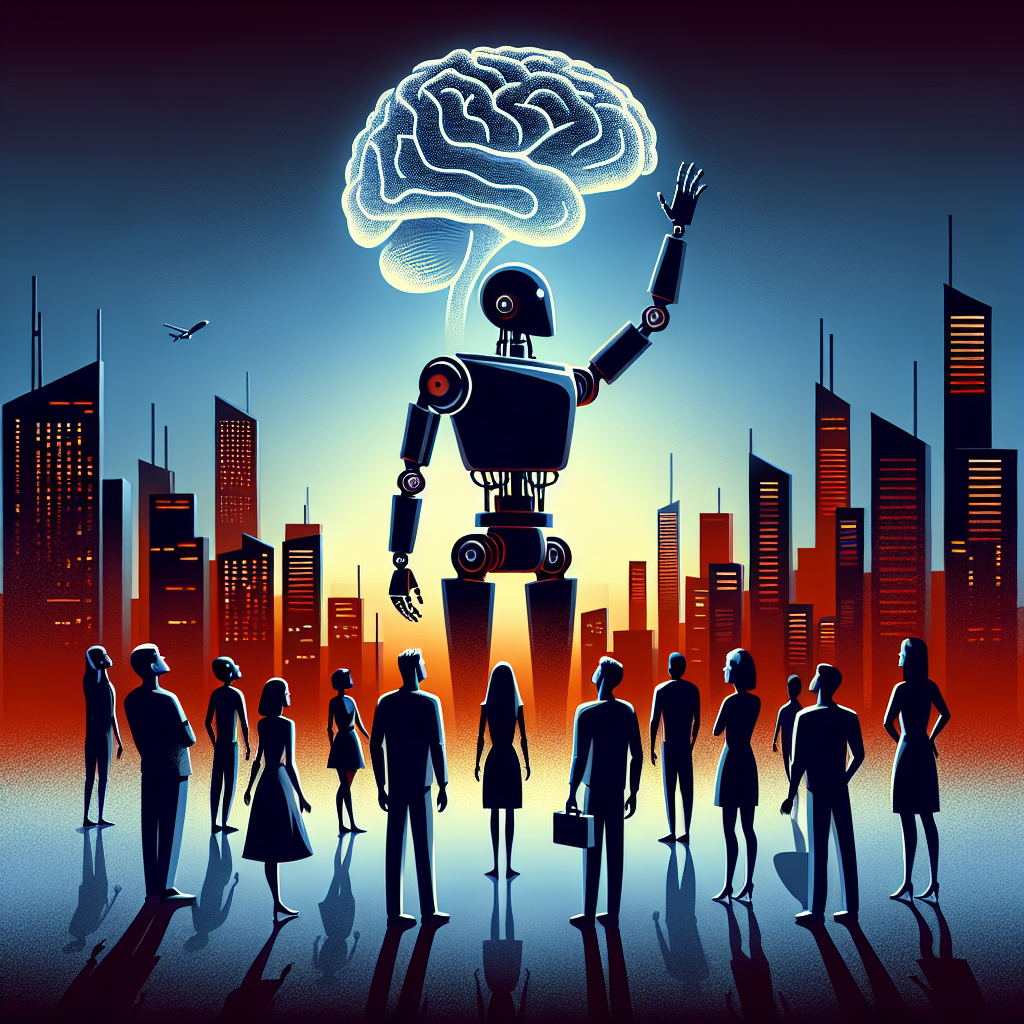The Rise of AI: How it Poses Risks to Society
Artificial Intelligence (AI) has become an integral part of our lives, from the algorithms that power our social media feeds to the virtual assistants that help us with our daily tasks. While AI has the potential to revolutionize industries and improve efficiency, it also poses risks to society that cannot be ignored.
One of the biggest risks of AI is the potential loss of jobs. As AI becomes more advanced, it has the capability to replace human workers in various industries, leading to widespread unemployment. According to a report by PwC, AI and automation could eliminate up to 38% of jobs in the U.S. by the early 2030s. This could result in economic instability and increased inequality, as those who are unable to adapt to the changing job market are left behind.
Another risk of AI is the potential for bias and discrimination. AI algorithms are only as good as the data they are trained on, and if that data is biased, the AI will produce biased results. For example, facial recognition software has been found to be less accurate for people of color, leading to potential misidentification and discrimination. In addition, AI has the potential to perpetuate existing inequalities, as those with access to better technology and data will have a competitive advantage.
AI also poses risks to privacy and security. As AI becomes more integrated into our daily lives, it has the potential to collect vast amounts of personal data, leading to concerns about surveillance and data breaches. There is also the risk of AI being used for malicious purposes, such as deepfake technology that can create realistic-looking fake videos and audio recordings.
Furthermore, there are ethical concerns surrounding AI, such as the potential for autonomous weapons systems to be used in warfare. The development of AI raises questions about accountability and responsibility, as decisions made by AI systems may not always align with human values and morals.
In order to address these risks, it is crucial for policymakers, researchers, and industry leaders to work together to develop ethical guidelines and regulations for the use of AI. This includes ensuring transparency and accountability in AI systems, as well as promoting diversity and inclusion in the development of AI technologies.
FAQs
Q: What is AI?
A: AI, or Artificial Intelligence, refers to the simulation of human intelligence by machines. This includes tasks such as learning, reasoning, problem-solving, and decision-making.
Q: How is AI used in society?
A: AI is used in a wide range of industries, including healthcare, finance, transportation, and entertainment. It is used for tasks such as data analysis, natural language processing, and image recognition.
Q: What are some examples of AI technologies?
A: Some examples of AI technologies include virtual assistants like Siri and Alexa, self-driving cars, facial recognition software, and recommendation algorithms used by streaming services.
Q: What are the risks of AI to society?
A: Some of the risks of AI to society include job displacement, bias and discrimination, privacy and security concerns, and ethical implications such as the use of autonomous weapons systems.
Q: How can the risks of AI be addressed?
A: The risks of AI can be addressed by developing ethical guidelines and regulations for the use of AI, ensuring transparency and accountability in AI systems, and promoting diversity and inclusion in the development of AI technologies.
In conclusion, while AI has the potential to bring about positive changes in society, it also poses risks that must be addressed. By working together to develop ethical guidelines and regulations for the use of AI, we can ensure that AI benefits society while minimizing its potential harms.

